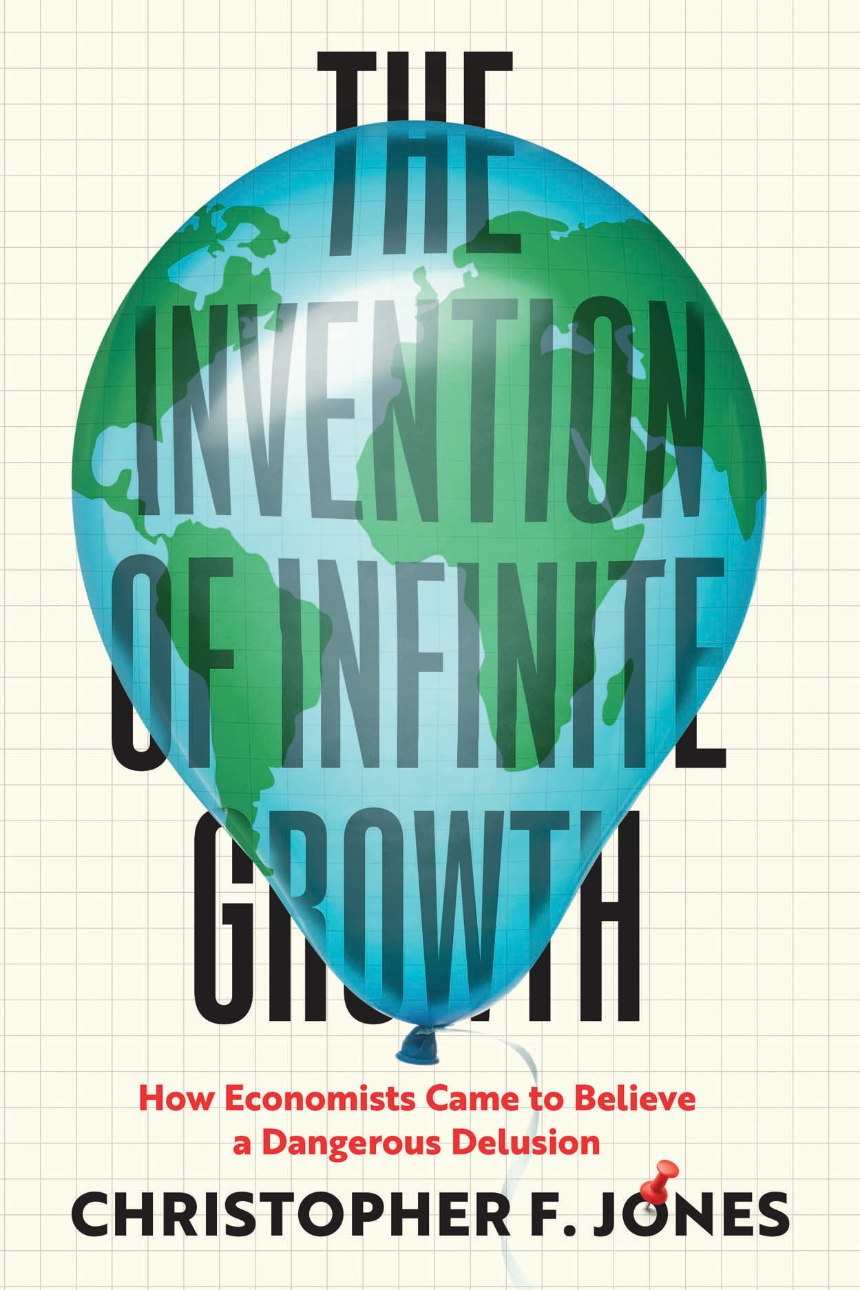The Invention of Infinite Growth
How Economists Came to Believe a Dangerous Delusion
9780226722047
9780226722184
The Invention of Infinite Growth
How Economists Came to Believe a Dangerous Delusion
A history of how the pursuit of growth has kept us from creating a more sustainable and just world.
Most economists believe that growth is the surest path to better lives. This has proven to be one of humanity’s most powerful and dangerous ideas. It shapes policy across the globe, but it fatally undermines the natural ecosystems necessary to sustain human life. How did we get here? In The Invention of Infinite Growth, environmental historian Christopher F. Jones takes us through two hundred and fifty years of economic thinking to examine the ideal of growth, its powerful influence, and the crippling burdens many decisions made in its name have placed on us all. Jones argues that the pursuit of growth has never reflected its costs, because economists downplay environmental degradation. What’s worse, skyrocketing inequality and diminishing improvements in most people’s well-being mean growth too often delivers too little for too many. Jones urges economists to engage more broadly with other ways of thinking, as well as with citizens and governments to recognize and slow infinite growth’s impact on the real world.
Both accessible and eye-opening, The Invention of Infinite Growth offers hope for the future. Humans have not always believed that economic growth could or should continue, and so it is possible for us to change course. We can still create new ideas about how to promote environmental sustainability, human welfare, and even responsible growth, without killing the planet and ourselves.
Most economists believe that growth is the surest path to better lives. This has proven to be one of humanity’s most powerful and dangerous ideas. It shapes policy across the globe, but it fatally undermines the natural ecosystems necessary to sustain human life. How did we get here? In The Invention of Infinite Growth, environmental historian Christopher F. Jones takes us through two hundred and fifty years of economic thinking to examine the ideal of growth, its powerful influence, and the crippling burdens many decisions made in its name have placed on us all. Jones argues that the pursuit of growth has never reflected its costs, because economists downplay environmental degradation. What’s worse, skyrocketing inequality and diminishing improvements in most people’s well-being mean growth too often delivers too little for too many. Jones urges economists to engage more broadly with other ways of thinking, as well as with citizens and governments to recognize and slow infinite growth’s impact on the real world.
Both accessible and eye-opening, The Invention of Infinite Growth offers hope for the future. Humans have not always believed that economic growth could or should continue, and so it is possible for us to change course. We can still create new ideas about how to promote environmental sustainability, human welfare, and even responsible growth, without killing the planet and ourselves.
376 pages | 23 halftones | 6 x 9 | © 2025
Economics and Business: Economics--History
History: American History, History of Ideas
Reviews
Table of Contents
Introduction
1. Before the Invention of the Infinite
2. The Discovery of Growth
3. The Kingdom of Solovia
4. Growth Without Nature
5. Growth Contested
6. Debating The Limits to Growth
7. Optimizing the Natural World
8. A Climate of Optimism
9. Green Growth and Its Discontents
Conclusion
Acknowledgments
Notes
Bibliography
Index
1. Before the Invention of the Infinite
2. The Discovery of Growth
3. The Kingdom of Solovia
4. Growth Without Nature
5. Growth Contested
6. Debating The Limits to Growth
7. Optimizing the Natural World
8. A Climate of Optimism
9. Green Growth and Its Discontents
Conclusion
Acknowledgments
Notes
Bibliography
Index
